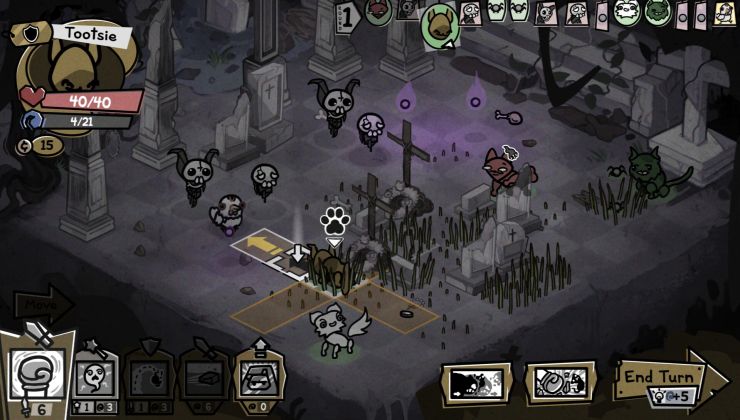It's that time of the month again Linux gamers! The new GOL survey for September is now available, so please make sure to fill it in if you have the time.
The results of the previous (August) survey will be published in the next few days. Thanks to those who filled that one out! There were a few changes, so it will be interesting to see the results.
You can find the link for the new survey here, and please share with other Linux gamers if you can.
The results of the previous (August) survey will be published in the next few days. Thanks to those who filled that one out! There were a few changes, so it will be interesting to see the results.
You can find the link for the new survey here, and please share with other Linux gamers if you can.
Some you may have missed, popular articles from the last month:
All posts need to follow our rules. Please hit the Report Flag icon on any post that breaks the rules or contains illegal / harmful content. Readers can also email us for any issues or concerns.
23 comments
Quoting: ShaoluHoly cow that was a lot longer than I originally intended. I get too verbose when I'm tired. Okay, going to bed now @_@But you wrote a really good and informative rant! I completely agree with on exception. I don't believe that Mint is the most used Distro. Distrowatch is so serious and objective as Phoronix is... not that much. ;)
1 Likes
reasons linux gaming is not popular
Drivers, hardware support: yup
OpenGL: yup
Vendor lock-in: yup
Misconceptions about the platform: yup
Ease of use: yup
More games: yup
basically everything except advertising
Drivers, hardware support: yup
OpenGL: yup
Vendor lock-in: yup
Misconceptions about the platform: yup
Ease of use: yup
More games: yup
basically everything except advertising
0 Likes
Quoting: loggfreakreasons linux gaming is not popularthis is true, but drivers won't be much of an issue once Vulkan is publicly released and added to Linux standard of distros. Valve will pretty much handle the vendor lock-in and advertisement if all goes well.
Drivers, hardware support: yup
OpenGL: yup
Vendor lock-in: yup
Misconceptions about the platform: yup
Ease of use: yup
More games: yup
basically everything except advertising
Ease of use is something DEs are working on all the time, which if the platform gains enough popularity, which wouldn't have to be a lot, because of the work Valve is doing, we could end up with more developers in the Linux community. Which in turn would enable more development across the board. So only time will tell how this will unfold. :)
0 Likes






 How to setup OpenMW for modern Morrowind on Linux / SteamOS and Steam Deck
How to setup OpenMW for modern Morrowind on Linux / SteamOS and Steam Deck How to install Hollow Knight: Silksong mods on Linux, SteamOS and Steam Deck
How to install Hollow Knight: Silksong mods on Linux, SteamOS and Steam Deck